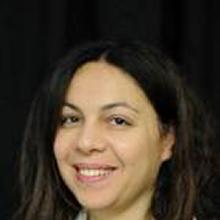International research project
Improving teaching and learning for all children
The years a child spends in school are some of the most important years of their life. School is where they are equipped with the life skills that will help forge their paths into adulthood. However, there is massive international concern that many children are being left behind.
Southampton researchers are at the forefront of efforts to address this global challenge. Through the Reaching the 'hard to reach’ project, they are trialling a new approach for the development of learning and teaching in schools called ‘Inclusive Inquiry’. This was devised by Southampton education experts as a result of earlier research carried out between 2011 and 2014.
We want to support teachers in responding to student diversity and ensure that everyone gets the very best education. We also want to enable children to see that they are part of the solution, by training them as researchers and having dialogues with their teachers and peers.
The approach is now being evaluated through a three-year study, funded by the European Union Erasmus+ programme, involving 30 primary schools and five universities in Austria, Denmark, England, Portugal and Spain.
The ground-breaking feature of the project is the role of children as researchers. This involves them in gathering evidence from classmates in order to assist their teachers in making lessons more inclusive.
Researchers in five universities, led by the University of Southampton, have monitored the impact that this has had on students’ engagement and on teachers’ thinking and practices.
Professor Kiki Messiou, Deputy Head of the Southampton Education School, is leading the study. She says: “We want to support teachers in responding to student diversity and ensure that everyone gets the very best education.
"We also want to enable children to see that they are part of the solution, by training them as researchers and having dialogues with their teachers and peers.”
During the final phase of the project, the findings will be shared with other schools in each of the participating countries. Kiki is optimistic that this will have a significant impact.
“The feedback from schools so far has been very positive, with headteachers telling us that the project has showed them that pupils have important contributions to make to the development of their school," she explains
For more information about the project visit the Reaching the 'Hard to Reach' website
